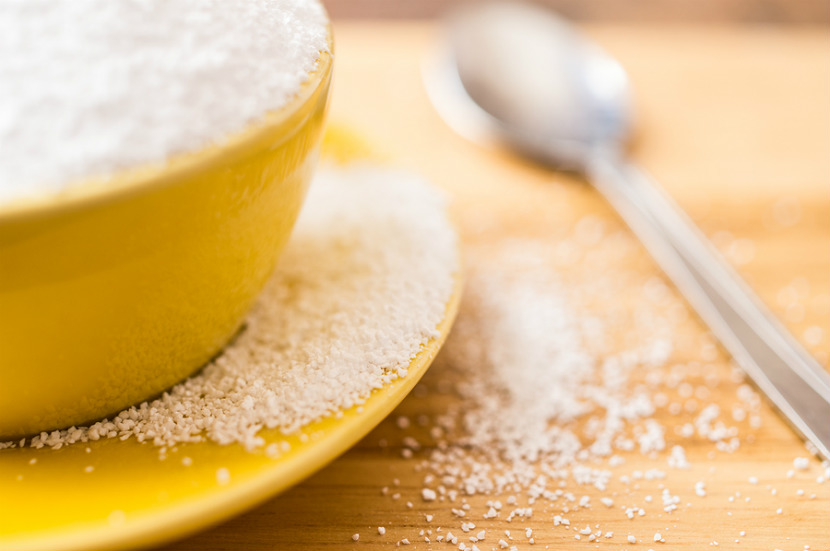
Artificial sweeteners are sugar substitutes that have a sweet taste. There are many different types of sweeteners available. Some are found in pre-packaged foods and drinks and some may be purchased to add to foods like coffee and tea, or for baking and cooking. Read on to learn more about artificial sweeteners, where they can be found and if they may be right for you.
What are the different types of artificial sweeteners?
There are two types of artificial sweeteners. Those that have calories and those that do not.
Artificial sweeteners with calories
Sugar alcohols are sweeteners with calories. They have fewer calories than table sugar and have only a small effect on your blood glucose level. Use the table below to get more information about sugar alcohols.
|
Sugar alcohol name |
How much is safe |
How it is used |
|
Sorbitol Xylitol Mannitol Lacitol Isomalt Erthritol |
Consuming over 10 grams per day may cause: Gas/bloating Diarrhea Stomach upset |
Used in some pre-packaged foods and drinks Used in some liquid medications |
Artificial sweeteners with no calories
The table below lists sweeteners with no calories. These sweeteners do not have an effect on your blood glucose level. They are often used in very small amounts because they can be 30 to 3000 times sweeter than table sugar.
|
Sweetener name |
How much is safe* |
How it is used |
|
Acesulfame Potassium (Ace-K) |
15mg/kg body weight |
Found in some pre-packaged foods and drinks. |
|
Aspartame: Equal® NutraSweet® |
40mg/kg body weight |
Found in some pre-packaged foods and drinks. |
|
Cyclamate: Sugar Twin® Sweet’N Low® Sucaryl® |
11mg/kg body weight per day |
Available to buy. Not allowed to be added to packaged foods and beverages. |
|
Saccharin: Hermestas® |
5mg/kg body weight per day |
Available to buy. Not allowed to be added to packaged foods and beverages. |
|
Sucralose: Splenda® |
9mg/kg body weight per day |
Available to buy. May be used for cooking, baking or instead of table sugar. Found in some pre-packaged foods and drinks. |
|
Steviol glycosides: Stevia Truvia® Krisda® Pure Via® |
4mg/kg body weight per day |
Available to buy. Found in some pre-packaged foods and drinks. |
*The amount of sweetener that a person may consume in a day is typically well below what is considered safe.
How do I know if a food has an artificial sweetener in it?
It is important to read the ingredient list. Sweeteners may be listed under many different names.
Are artificial sweeteners safe?
Yes. Health Canada regulates all sweeteners that are used and sold in Canada. Sweeteners are only approved when scientific evidence confirms that they are safe. If you have a condition called phenylketonuria (PKU), avoid foods that have aspartame.
What about the safety of artificial sweeteners in pregnant and breastfeeding women?
Sugar substitutes are safe in moderation during pregnancy. However, it is important that foods and drinks made with these do not replace more nutritious options. If you have concerns or questions about using sweeteners, talk to your health care provider or a dietitian.
What about the safety of artificial sweeteners infant and children?
It is recommended that infants and children avoid sweeteners. Foods and drinks with sweeteners may replace other more nutritious foods. Read the ingredient list on foods like yogurt, canned fruit, cereals and cookies that may contain sweeteners.
Should I use artificial sweeteners if I have diabetes?
It depends. You may choose to use sweeteners as part of your diabetes management if:
-
You would like more flexibility in your meal plan (i.e. you are counting carbohydrates)
-
You prefer the taste of products that include sweeteners
-
You are using sweeteners as a part of a weight management strategy
-
You would like to reduce the amount of carbohydrates in your diet
Bottom line
There are many different types of sweeteners available that can be used for different purposes. It is important for you to decide which ingredients are right for you.
You may also be interested in
Diabetes, sugar and sweet foods
All about stevia
Last Update – August 16, 2018